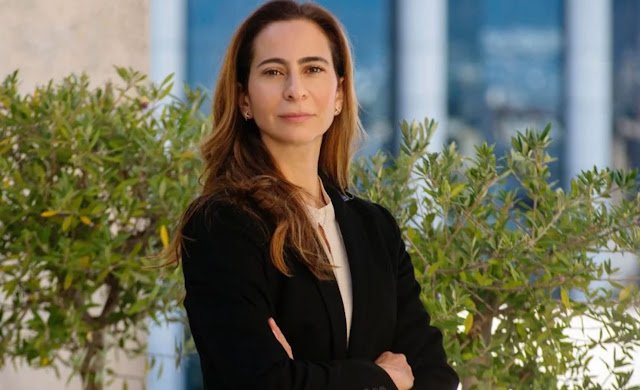Semiramis Paliou, INTERMEPA Chairperson, HELMEPA Chairperson
The industry’s commitment to change involves navigating the waters of all these contemporary challenges and requires attention and innovation to ensure a sustainable and adaptable future for shipping.
Decarbonization stands as one of the foremost challenges facing the shipping industry. The impacts of global warming are increasingly being felt worldwide and are also leading to disruptions in major shipping routes, such as the congestion around the Panama Canal from the reduced water levels due to the severe droughts.
Therefore, it is critical for shipping to achieve the ambitious revised targets set by the International Maritime Organization (IMO) to reach net zero greenhouse gas emissions by 2050 and to achieve an uptake of zero or near zero technologies by 2030. This demands a fundamental shift in energy sources and operational practices, which in turn requires considerable investment in R&D for new alternative fuels and propulsion systems, port infrastructure and vessel design optimization, as well as the establishment of a framework that rewards first movers.
Compliance with stringent environmental regulations is essential for sustainable shipping operations. Companies are already investing in eco-friendly technologies and practices to comply with regulations and reduce their environmental footprint. Encouraging recycling, reusing materials, and adopting a circular economy approach can minimize waste generation and promote sustainability, while embracing transparency in reporting emissions and environmental impact fosters accountability and builds trust with stakeholders and society at large.
The rapid digital transformation of shipping promises increased efficiency, transparency, and operational optimization. Smart shipping solutions such as implementing IoT devices, AI-powered predictive maintenance, and blockchain technology for secure and transparent transactions are streamlining operations and reducing costs. However, as shipping becomes more reliant on digital systems, cybersecurity measures are critical to safeguard vessels, ports, and infrastructure from cyber threats.
Geopolitical tensions also impact shipping by driving shippers to diversify their routes and seek alternative pathways for smoother operations. Constant monitoring and analysis of geopolitical situations are necessary to enable proactive decision-making, allowing companies to adapt swiftly to changing circumstances. Engaging in dialogue and fostering partnerships among stakeholders, including governments, shipping companies, and international organizations, promotes stability and reduces the impact of geopolitical tensions on the industry.
The shortage of skilled seafarers and in particular qualified senior officers is another major challenge facing the shipping industry. According to the most recent data, seafarer labour shortages are at a 17-year high and approximately 90,000 additional officers will be needed by 2026 to operate the world’s merchant fleet.
Addressing this deficit requires innovative approaches to attract and retain talent. The psychological toll of the Covid-19 pandemic on crews, which remained for many months onboard ships due to travel restrictions, is leading shipping companies to place an even greater focus on crew wellness, emphasizing a better work-life balance and improving onboard living conditions.
Promoting the value proposition of shipping to youth along with career advancement opportunities can also attract fresh talent to the industry and project the industry’s appeal to potential recruits. At the same time, the new skills required by the seafarer of the future enable a greater presence of female officers onboard ships thus enhancing the industry’s gender diversity profile.
Empowering seafarers to support the green and digital transition through training and reskilling programs is another major issue, especially in the forthcoming years until the revision of IMO’s STCW Convention takes place, and the new requirements are transposed into national seafarer education systems.
Innovative collaborative approaches such as the METAVASEA project focusing on a “People-Centered Transition for Maritime Decarbonization in the East Mediterranean” are necessary to boost the involvement of shipping companies and ports in maritime decarbonization initiatives, to offer insights into shipping and community readiness for new fuels, and to identify region-specific opportunities, gaps, and challenges.
Coordinated by HELMEPA with the support of Lloyd’s Register Foundation and the contribution of 6 partners, 12 associate partners and 56 maritime stakeholders in Greece and Cyprus, the project aims to train and upskill 1,500 seafarers, shipping professionals, and port workers in new fuels, digitalization and emerging technologies, marine environmental awareness, and soft skills, while also raising climate awareness among 10,000 schoolchildren, 750 teachers, and 2 million residents in the wider East Mediterranean.
In conclusion, the challenges facing the shipping industry are multifaceted, requiring a comprehensive and adaptive approach. Embracing innovation, collaboration, and a commitment to sustainable practices through the incorporation of ESG principles in corporate strategies are crucial for the industry’s resilience and evolution.
At the same time, it is essential that this major transformation of shipping takes place with human capital at the center of attention, thus paving the way for a more sustainable and efficient future.















